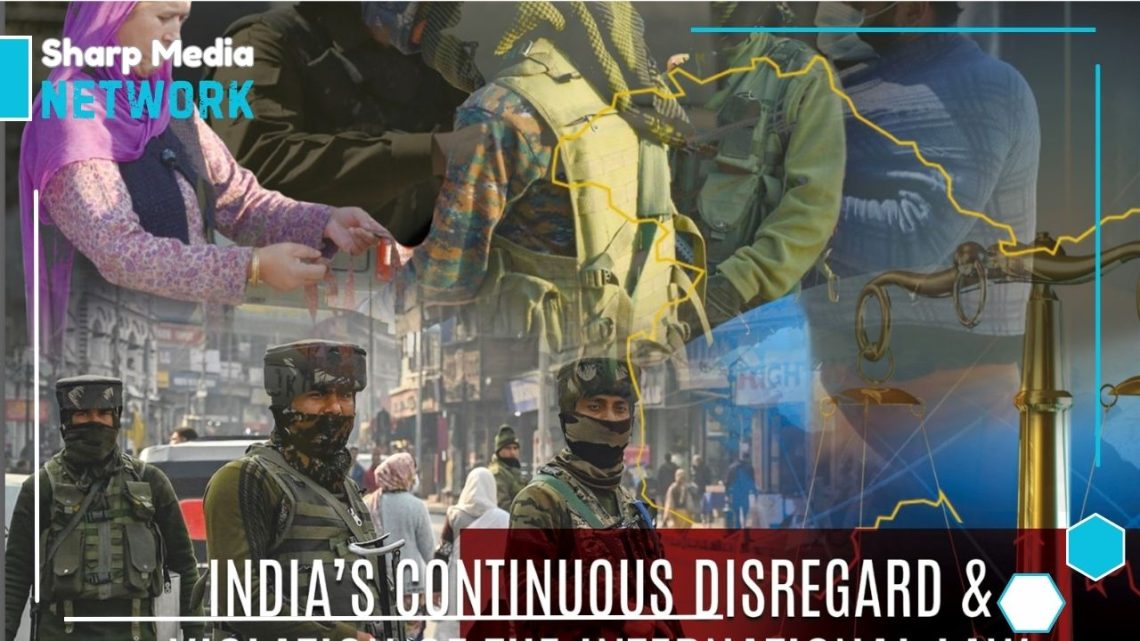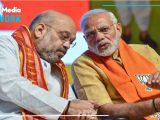
India’s Double Standards on Kashmir at the UN: Contradictions and International Law
March 27, 2025India’s recent rejection of Pakistan’s references to IIOJK at the UN underscores the country’s strategic narrative on Kashmir, yet it raises serious questions about its adherence to international law and commitment to peacekeeping principles.
India’s Permanent Representative to the United Nations, Ambassador Parvathaneni Harish, recently dismissed Pakistan’s references to Indian Illegally Occupied Jammu and Kashmir (IIOJK) at the UN, calling them “unwarranted” and reaffirming that the region is an “integral part” of India. This move highlights India’s continued efforts to assert its sovereignty over IIOJK, while simultaneously rejecting any international discussion of the issue. India also emphasized Pakistan’s “illegal occupation” of parts of IIOJK, accusing Pakistan of diverting attention from discussions on peacekeeping and Security Council reforms.
India’s assertion that IIOJK is its “integral part” contradicts the fact that the region remains under the jurisdiction of the United Nations Security Council (UNSC). UNSC Resolution 47, passed in 1948, declares IIOJK as a disputed territory and calls for a plebiscite to determine the region’s final status. India’s refusal to recognize this legal framework undermines its claim of sovereignty. Furthermore, the Kashmir dispute continues to be listed as an unresolved issue on the UN agenda, making India’s dismissal of Pakistan’s references as “unwarranted” baseless.
Another contradiction in India’s stance is its selective engagement with the UN’s peacekeeping norms. India has long emphasized its role in UN peacekeeping reforms, but its domestic and regional policies in Kashmir undermine its credibility in this area. While both India and Pakistan agreed to a ceasefire along the Line of Control (LoC), India’s use of excessive force in IIOJK raises questions about its commitment to peace. Reports from the UN Human Rights Office (OHCHR) in 2018 and 2019 document human rights violations in IIOJK, including extrajudicial killings, illegal detentions, and censorship of the press.
India’s diplomatic narrative also relies heavily on the terrorism angle to dismiss the issue of Kashmir. The Indian ambassador linked Pakistan’s stance on Kashmir to cross-border terrorism, a strategy often used to delegitimize discussions on Kashmiri self-determination. India frequently conflates armed struggle with peaceful political resistance, branding Kashmiri voices as “terrorists” to silence their calls for autonomy. This approach has severely restricted meaningful dialogue on the region’s future.
India’s rejection of international mechanisms, such as the United Nations Military Observer Group in India and Pakistan (UNMOGIP), further exposes the contradictions in its stance. While Pakistan allows UNMOGIP access, India has imposed restrictions, indicating a reluctance to engage with UN mechanisms that could help mediate the Kashmir dispute.
India’s actions on the global stage reveal a selective narrative that seeks to portray IIOJK as an internal issue, rather than an internationally recognized dispute. By rejecting mediation and violating UNSC resolutions, India raises serious questions about its credibility in peacekeeping and its commitment to the principles of justice and conflict resolution.
India’s diplomatic posture at the UN reflects a stark contradiction between its global peacekeeping narrative and its actions in IIOJK. While presenting itself as a responsible player in international peacekeeping, India’s violations of international law, disregard for UN resolutions, and human rights abuses in Indian Illegally Occupied Jammu and Kashmir expose the gap between its claims and its actions on the ground.

